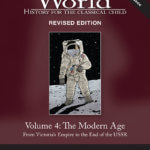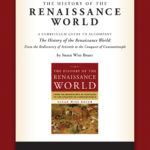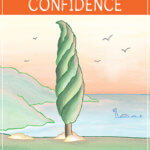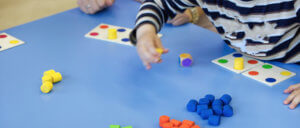
“…we should approach claims on the part of a textbook and curriculum publisher
to know the truth with great, great caution (not to say suspicion).
God has not revealed His truth through publishers.
He has revealed it within the context of a faithful, local worshipping community. “
Although I generally refrain from theological discussions online (the article below will explain why), I’ve been disturbed by discussions which pit The Well-Trained Mind against Christian classical education. If you’re interested in this topic, read on.
In 1998, New York publisher W. W. Norton & Company bought our proposal for a book about classical education. We were delighted; we thought that The Well-Trained Mind: A Guide to Classical Education at Home (which I co-wrote with my mother, Jessie Wise) fit beautifully into Norton’s list, which includes the Norton anthologies — collections of classic literature which have been used by generations of college students — and numerous twentieth-century classics of philosophy, history, and literature. Norton, one of the last large independent publishing companies, hasn’t been swallowed by a conglomerate; it is willing to publish books that go against the “best educational philosophy” of the present day, which we saw as a great advantage, since we rarely agree with any of the philosophy that comes out of schools of education. Norton’s interest in a book about classical education was proof that this time-honored way of teaching was indeed experiencing a welcome renaissance.
Publishing with a “secular” company did, however, prove more complicated than we had anticipated. We soon found ourselves in an ongoing debate with our editors about the proper tone to take towards Christian belief. As Christians ourselves, we ground everything we do and write in our commitment to our faith; our beliefs and practice are shaped by the historic creeds of the orthodox Christian church, particularly the Nicene and Apostles’ Creeds, which we return to in our worship time and time again; our commitment to our local church, in which we see Christ’s Great Commission acted out through hospitality, through worship and through the celebration of baptism and the Lord’s Supper, is central to our lives. Yet Norton, with its eye on the “wider reading public,” was concerned that the book not exclude parents who do not identify with our Protestant beliefs. Our chapters on the place of religion in history were edited, and edited again. At one point, an editor even suggested that we not recommend any curricula from religious publishers, in order to maintain “neutrality” on the subject of religion.
We resisted this, arguing that the academic rigor of some our favorite resources from religious publishers were simply not matched by any “secular” resources. And we also objected that leaving religious curricula out was not, as our editors suggested, “neutral,” but rather showed a disturbing hostility towards Christian home schoolers and their beliefs. I wrote a defense of our position which eventually was incorporated into Chapter Eleven, “Matters of Faith: Religion”:
Education cannot be neutral when it comes to faith: it is either supportive or destructive. The topic of education is humanity, its accomplishments, its discoveries, its savage treatment of its own kind, its willingness to endure self-sacrifice. And you cannot learn — or teach — about humanity without considering God. Let’s take biology as an example. Mammals are characterized by, among other things, their tendency to care for and protect their young. Do mothers love their babies because of sheer biological imperative? If so, why do we come down so hard on fathers who neglect their children? It’s a rare male mammal that pays attention to its young. Do fathers love their babies because of the urge to see their own genetic material preserved or because fathers reflect the character of the Father God? How should a father treat a defective child? Why? (p. 212, The Well-Trained Mind: A Guide to Classical Education at Home).
Our editors agreed; the argument stayed in the book, as did our favorite resources. And in the second part of the book, when I argued that a truly classical education must acknowledge the claims of faith, our editors agreed again. I wrote:
[E]thics cannot be discussed in some sort of “neutral” fashion. If you are a theist, you believe that human character comes from a Creator and reflects some of the Creator’s qualities. If you are a materialist, you believe that human character is primarily the result of biological factors, some of which can be controlled, some of which can’t. If you are a Christian, you believe that moral absolutes are binding upon every human being. If you are an agnostic, you believe that moral absolutes are unknowable and that making pronouncements about moral absolutes thus reaches the height of arrogance. What sort of neutral ground can these views meet on? None. (p. 546, The Well-Trained Mind: A Guide to Classical Education at Home).
In this, I simply repeat the argument against “neutrality” made by Cornelius Van Til, J. Gresham Machen, Francis Schaeffer, and other thinkers who shaped my own education. But The Well-Trained Mind, when it was published in final form in the fall of 1999, was marketed by the publisher as “non-sectarian.” Is the book indeed “neutral?” And if so, why?
In the The Well-Trained Mind, we suggest the use of many “secular” texts (in the first edition, the Usborne History of the World, the Kingfisher Illustrated History Encyclopedia, and Paul Johnson’s History of the Renaissance, among others). For science, we recommend Wild Goose chemistry kits, “Science in a Nutshell” science kits from Delta Education, the Reader’s Digest/Dorling Kindersley series How Nature Works, How the Universe Works, How the Body Works, and many other materials. Our reading list for middle grade students includes secular history books as well as Pilgrim’s Progress and Reformation biographies such as those of Martin Luther and John Wycliffe. Our Great Books list for twelfth graders includes Darwin’s On the Origin of Species, Nietzsche’s Thus Spake Zarathustra, and C. S. Lewis’s Mere Christianity.
As the book became popular, these mixed recommendations drew numerous questions from Christians using The Well-Trained Mind to organize their own classical programs. Why do we — Christians who have the centrality of our faith as the organizing principle of everything we do — choose to approach education in this fashion? Don’t we believe that the knowledge of God is central to true education? How could we publish a book that didn’t explicitly assert God’s sovereignty over each specific area of the curriculum? Why was the book so secular?
The presence of “secular” book recommendations is not, itself, reason enough for such objections. After all, such Christian publishers as Greenleaf Press, Canon Press, and Veritas Press have always sold books that are not written from an explicitly Christian perspective, and Christian parents (the same ones protesting the “secular” nature of The Well-Trained Mind) buy and use these books. Veritas Press, while asserting that “Should God fail to exist, the certainty of two plus two equalling four would no longer be with us,” nevertheless sells the Saxon math program, which never specifies the philosophical grounds for all those math fact drill sheets. Canon Press sells John Milton Gregory’s Seven Laws of Teaching, which isn’t explicitly Christian in content — and our own book, “secular” though it may appear.
But both of these publishers also provide a central story of Christianity around which various resources (both secular and Christian) are organized. In contrast, our book — while insisting that neutrality is impossible, and that issues of faith and belief must be central in classical education — nevertheless refrains from laying out a Christian theology of knowledge.
While it’s true that Norton copy editors changed my wording and eliminated some specifically Christian theological points, I do not want to claim that the final, essentially non-sectarian form of The Well-Trained Mind is “Norton’s fault.” Given that I signed the contract and spent the advance, I’d be in an entirely indefensible position if this were the case. I would have “sold out” to a secular publisher for the sake of finding a wider readership, allowing my own convictions to be “cleansed” so that I could go and cash Norton’s advance check.
In fact, The Well-Trained Mind reflects a deep commitment to Christ-centered education and accurately portrays my own convictions about what Christian education should be. There is an integrating principle to the book, but it is one that grew out of our own experience as faithful members of a Christian community — and I think it is one that many Christians will feel uncomfortable with.
I want to suggest — classical educator that I am — that in our immense and proper regard for the Word of God, we have elevated words in general (books and the Christian print culture which grew out of the American publishing scene) to a wildly exaggerated place of respect. We have allowed publishers, writers, and curriculum authors an authority which is unmatched even by the authority of the local body of Christ. I am not suggesting that we somehow lower our view of Scripture, but I am suggesting that the victory of the printing press has not strengthened Christianity. If it had, wouldn’t the church of Christ be stronger now than in the first century? Look at the fragmented, divisive, confrontational state of American Christianity; look at the hundreds of Bible versions that jostle for supremacy on bookstore shelves; look at the power which theologically bad books (from Left Behind to Chicken Soup for the Soul) exert over American Christians; look at the place that the Christian bookstore has assumed in determining the average Christian’s view of marriage, material gain, and work. And then consider that the New Testament church flourished with a low literacy rate, with Scriptures that were not printed and thus had to be read aloud — and so were always read and interpreted within the context of the obedient, faithful, local, believing community.
The church of Christ, not textbook writers, should be responsible for providing the central Christian story that must inform all true education. When I wrote in Chapter Twenty of The Well-Trained Mind, “When you’re instructing your own child, you have two tasks with regard to religion: to teach your own convictions with honesty and diligence, and to study the ways in which other faiths have changed the human landscape. Only you and your religious community can do the first,” I was not attempting to maintain neutrality. Rather, I was asserting that a Christian education can only be provided by a Christian community — parents, in obedience to and in faithful relationship with their local church.
What Is A Christian Education?
Christian education is that which has the knowledge of God at its core. But how do we obtain this knowledge of God, and how do we teach it?
American Christians, influenced by a culture that exalts individualism above all else, are far too ready to answer, “I obtain the knowledge of God from God, through Christ, by the agency of the Holy Spirit, and I teach it to my children in the privacy of my home.” I wouldn’t contradict anything in this statement — but I suggest that it is incomplete. Do we need something other than God’s freely-given grace to bring us to a saving knowledge of God? No — but throughout Scripture, this grace is always given in the context of God’s work with His chosen people as a whole. Adam and Eve were created to know God — and to give birth to a people who would know and worship God along with them. In a sin-corrupted world, Abraham was called by God, alone in his tent — but he was called so that he could be the father of a whole new people, who would know and worship God in company with each other. And Christ came, not to call individuals to a sort of private union which would exalt each soul to a solitary divine ecstasy, but to create a new community — a people who would join together to worship God. When this community came to life, we read in Acts 2, they spent all their time together: worshipping, living, eating, and (without a doubt) teaching their children. Their supernatural unity, visible to the pagans all around them, brought scores more into the knowledge of God — and into the community of the faithful.
American evangelicalism has been far too ready to dismiss the centrality of the church in God’s plan for Christianity, far too eager to embrace an individualistic view of salvation — and far too dependent on books, rather than on community life, to shape their spiritual disciplines. Yet God’s salvation must be lived out in a community of believers. As Robert Godfrey of the Alliance of Confessing Evangelicals writes in “The Electronic Church”:
The necessity of the local church is clearly taught in Scripture and is indispensable for the Christian life. … God’s saving work…is not concerned with individuals in isolation. Rather, God is redeeming a people whom he calls the Body of Christ, the church. … The Bible is clear that Christians are also required to be part of the institutional church’s life, particularly the life of the local church, which God himself has brought into being and structured by his Word.
Yet American Christians, Godfrey warns, tend to prefer individualistic freedom:
The care Christ and the apostles took to provide us with officers and an institutional church should make a great impression on us. Christ and his apostles established an institutional church to help us in our need and weakness. Elders are appointed for our sakes, and we need to submit ourselves to their authority in the local church if we are to be obedient to the Lord and his vision of the Christian life. Submission to elders is closely tied to the question of church membership. Some people today object to the idea that Christians must be church members, suggesting that such a requirement is unbiblical. But surely Christ established eldership in his church. Elders are necessary to teach and admonish and discipline us. But how can elders carry out that work unless we submit to them? What is church membership but to join our local congregation and submit to the elders’ authority? … Many people do not like the idea of a disciplined church. They believe they should be able to do whatever is right in their own eyes. Such an attitude reflects the militant individualism of our society. But it does not reflect Christ’s teaching about the life of his church. Proper discipline by the officers of the church is necessary for the well-being of individual Christians as well as for the church as a whole. Such discipline can take place only in the context of membership in a local church.
If the authority of the local church is so important to the Christian life, how can it be any less important in Christian education?
The Well-Trained Mind is not a book of science, a book of history, a book of literature, or a book of theology. It is an overall plan for education, laying out an entire curriculum for the home educator. This overall plan for education must have a theological center which encompasses every single subject. But who is responsible for providing this theological center? Should my mother and I lay it all out for you, so that you can give your child a godly education?
In my opinion, training your children in the ways of your faith is not a responsibility which can be assumed by any other party. The responsibility for teaching truth to children belongs to believing parents who are faithful members of a local church. Why should you abdicate this to curriculum writers or religious book publishers? You cannot see our lives; you cannot determine our faithfulness to our local church; you cannot see the fruits of our lives. We can provide you with a good plan for teaching grammar and math, but I do not believe that we should usurp the job of your believing community by explaining the ways of God in history to your children. The Christian narrative that gives shape to education must, in the final analysis, be provided by parents who are guided by a faithful believing community.
The gospel is understood within a faithful believing community, not alone with one’s Bible; and gospel-based education is formulated and applied within a faithful believing community, not alone with one’s Bible and a copy of The Well-Trained Mind (or any other homeschooling book).
Why Don’t We Recommend More Religious Curricula?
Our readership includes, not only those who faithfully follow other religious traditions, but also many different groups of Christian believers, whose practice bears the stamp of particular cultural expressions of Christian: Baptist, Mennonite, Reformed, Catholic, and more.
If we did decide to recommend specific Christian curricula, which of these cultures should we choose?
In reviewing religious curricula for The Well-Trained Mind, I continually found myself dissatisfied with their content and wishing that I could teach (for example) history without continually explaining to my son that our local church sees American history quite differently than a “providential” history text, well-intentioned though it is. I found myself continually feeling that these curricula were usurping a teaching position that belonged to our church, my husband, and myself.
Consider the example of grammar. When my oldest son was in the elementary grades, I used A Beka Book grammar, which I thought was, at that time, the best available. Yet when using the third-grade A Beka Book grammar text, I found myself continually encountering a particular view of salvation which I thought was limited and (in the end) wrong. The exercises continually refer to “getting saved” and “accepting Jesus” as though the central event of salvation is a single point in time during which the child is instantly transformed from pagan to Christian in the blink of an eye. Yet our own worshipping community is centered around the reality that belief in Christ is an ongoing discipleship of obedience, not a split-second decision, and that “being saved” is only a partial description of salvation.
Furthermore, the exercises continually refer to children who invite other children to church and then lead them to Christ, apparently independent of family, worshipping community, or any other group of God’s people. “Keith asked his friend, ‘Have you accepted Jesus as your Savior?’ The boy answered, ‘No, but I would like to.'” Salvation is thus shown to be a point in time, something to which children can arrive at independently with the help of other children — and that’s all that’s ever presented in this book. “All Christians should be happy,” read another exercise, leaving me to wonder whether A Beka really sees no difference between the emotional state “happy” and the spiritual state “joyful,” and if they really saw the Christian life as a perpetual tiptoe through roses.
I also found myself disagreeing with the continual identification of America as God’s promised land. Apparently the A Beka curriculum writers see nothing incongruous with juxtaposing (as they do, in one exercises on plurals) the two sentences, “No man can serve two masters” and “Many soldiers laid down their lives for American freedom.” There’s nothing wrong with either sentence, of course, but by interlarding Biblical commands with paeans to the perfection of America, the text reveals an uncritical view of America’s roots that I personally do not wish my son to imbibe. “Mr. Vincent sang ‘God of Our Fathers,'” reads another exercise, which has a child ringing the bell in the church tower in order to start a patriotic church service during which the song “America” is the call to worship.
We much prefer, when possible to recommend good and thorough resources which do not teach doctrinal and sanctification issues that we feel should be entrusted to the worshipping community.
I made this point to a Reformed believer who was very concerned that our book did not specifically teach Christian doctrines; I used the A Beka exercises as an example of why we were reluctant to recommend Christian curricula. “But I would argue that this error in presenting salvation makes it an academically inferior curriculum,” he protested, comparing it to a phonics program that taught specifically Reformed doctrines. His point? The Reformed phonics program was academically superior, AS a phonics program, because its doctrine was Reformed.
Yet faithful Eastern Orthodox believers find Reformed history resources (which often leave out the role of the Eastern Orthodox church) unusable for their children.
This simply demonstrates the extent to which academics and theology, and theology and cultural norms, overlap–and how unaware believers can be of the very existence of this overlap.
There are many educational issues (as there are worship issues: exclusive psalm singing, head covering, use or avoidance of certain translations) which must be tackled in the context of the local worshipping community. When these issues are taken on by publishers, it is unfortunately far too easy for the word “heresy” to enter the debate. (And there is no possibility of looking at the life of the person making the argument to determine their faithfulness to God’s ways.)
Truth is important, of course; I do not want to fall here into the anti-intellectual trap of saying that doctrine is unimportant, that (for example) Roman Catholic and Reformed believers are bickering about inessentials and should just agree to teach their children that Jesus is God. But I am making a plea for intellectual humility — a plea which can very easily be mistaken for a claim that truth can never be known. I believe truth can be known; I believe God has laid down very clear guidelines for the life of godliness. What I am less sure of, given my own theological journey, is that I always work to distinguish essential truths from cultural prejudices. I do not wish to make matters of secondary importance central to Christian education.
A prime example of this, in my view, has been the young earth/old earth debate taking place within creationist circles. I have found (to my distress) that even mild suggestions I have made about beginning the study of history in 5000 BC have been attacked with great vehemence by some who hold to Bishop Ussher’s dating of creation at 4004 B.C. Although this has become a minority position even among young earth creationists, it was once dogma. Some years ago, I published a critical review of a Christian biology text which, in my opinion, dealt with evolution by putting up straw men and then knocking them down. I was immediately attacked as “unwilling to admit the truth of creationism” and thus contributing to a “secular” world view. Yet I had not questioned God’s creation of the earth, merely this writer’s interpretation of certain scientific details claimed to support it.
No doubt the writer, Bishop Ussher, and I could all say together in our worship, “I believe in God, the Father Almighty, Maker of heaven and earth.” Yet that central affirmation of God’s ultimate creatorship of everything that exists is not presented in most curricula, which instead hold (and make central to salvation) a particular stance on how and when God made heaven and earth. Fruitful discussion on this topic is sadly lacking from the Christian community.
In recommending a science curriculum, then, how should I proceed? My own study of Genesis 1 and 2 (done under the guidance of my local church) has convinced me that I do not yet understand everything implied in these two stories of creation; I do not see here a Scriptural mandate that should tie me to a literal creationist position at all–let alone a young earth one. So should I recommend to home schoolers — who belong to communities of faith that are seeking for the answer to this very question — a biology text that may contradict their own church’s teaching on the subject?
Let me repeat: I am not saying that truth is unknowable. Instead I am saying that we should approach claims on the part of a textbook and curriculum publisher to know the truth with great, great caution (not to say suspicion). God has not revealed His truth through publishers. He has revealed it within the context of a faithful, local worshipping community.
If we ever come to a meeting of the minds over how to view the ways in which God created heaven and earth, it won’t happen by the divine intervention of textbook writers, or a particularly convincing article; it will come through the work of the Holy Spirit in the place where He chooses to work, the gathering of His people. I believe that God gives wisdom in these secondary principles to his faithful worshipping communities — not to writers of how-to books on home education.
Is The Well-Trained Mind a Christian Book?
In the end, I fall back on a definition that I have used in reference to my other writing. When people ask whether I write Christian novels, I answer that I write novels, and because I am a Christian, all of my writing displays who I am and what I believe. I don’t believe that a book can be “profoundly Christian,” only the people who read it; in the same way, I feel that truly Christian education is that education carried out by Christians for the sake of the kingdom of God, not education that uses (or avoids) certain books.
Some parents will find that this Christian education requires the use of theologically specific resources. Other parents — such as myself — will find that they are doing thoroughly Christian education using a world history text such as the Kingfisher History Encyclopedia along with plenty of discussion.
In the end, Christian education is that given to children by Christian parents who are in fellowship with other believers in faithful local churches. It is our hope that The Well-Trained Mind will make this task easier without usurping — as books too often do in evangelical America — the authority of those churches.
Recommended Products
-
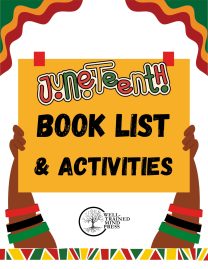
Juneteenth Booklist & Activities
0 out of 5$0.00 Add to cart -
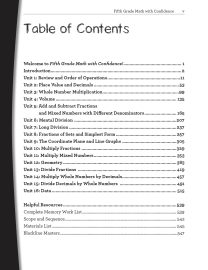
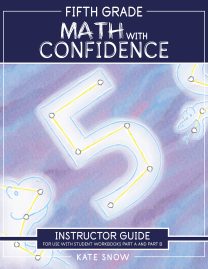
Fifth Grade Math with Confidence Instructor Guide
0 out of 5Starting at:$36.95Original price was: $36.95.$27.71Current price is: $27.71. Select options -
Sale!

Hansel & Gretel and Other Stories: Downloadable MP3
0 out of 5$12.95Original price was: $12.95.$9.71Current price is: $9.71. Add to cart -
Sale!

Dorothy and the Wizard in Oz: Downloadable MP3
0 out of 5$25.95Original price was: $25.95.$19.46Current price is: $19.46. Add to cart -
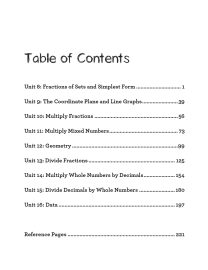 Sale!
Sale!
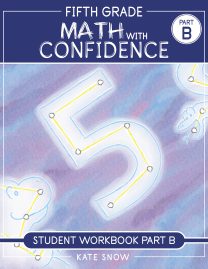
Fifth Grade Math with Confidence Student Workbook B
0 out of 5$16.46 – $21.56 Select options This product has multiple variants. The options may be chosen on the product page -
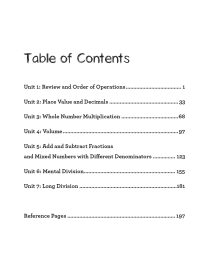 Sale!
Sale!
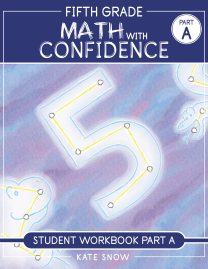
Fifth Grade Math with Confidence Student Workbook A
0 out of 5$16.46 – $21.56 Select options This product has multiple variants. The options may be chosen on the product page
ABOUT THE AUTHOR
Susan Wise Bauer
Join over 100,000 homeschooling families
For the latest offers, educational insights, products and more.
By joining you agree to our privacy policy.



